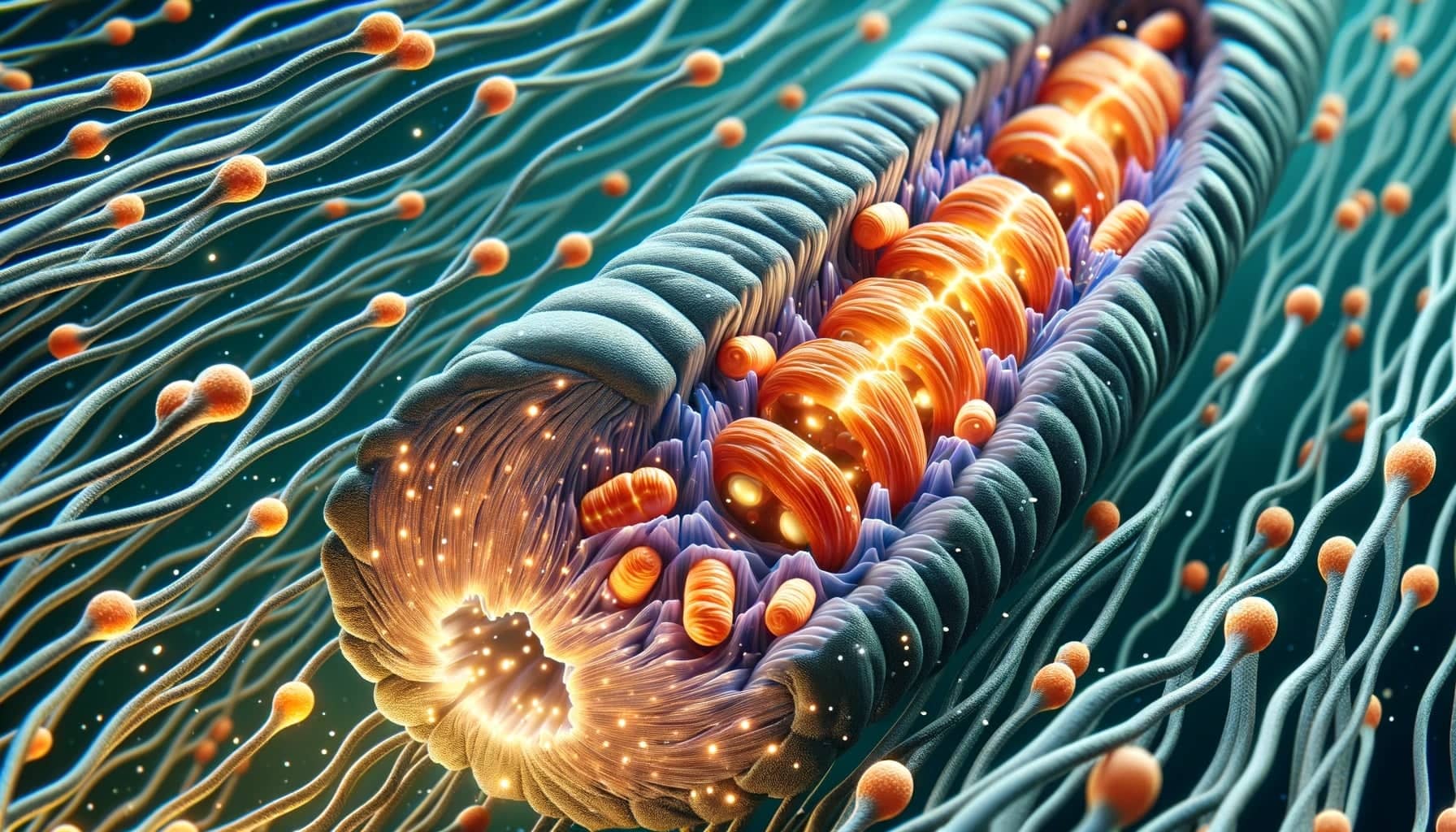
Mitochondria Role in Enhancing Muscle Health and Longevity
Have you ever thought about what makes a long, healthy life? It’s more than diet and exercise. Inside your muscles are tiny powerhouses called mitochondria. They are key to our muscle health and longevity. Let’s explore how these little wonders affect our muscles.
Mitochondria: The Dynamic Powerhouses
Imagine a small bean inside your muscle cells. These are mitochondria. They’re not just sitting there; they’re always changing, like transformers, to meet your muscle needs.
Mitochondria can join together (fusion) or split apart (fission). This is controlled by proteins like Mitofusin 1 & 2, and Opa 1 (fusion), and Drp1 (fission). Other helpers, like Fis1, Mff, MiD49, and MiD51, also help in this process.
This activity keeps muscles working well. Experiments with mice show that problems with these processes can harm muscles. Mice without Mitofusin proteins had damaged mitochondria and other issues.
When muscles lack Opa1, problems like mitochondrial dysfunction and stress occur. This can also affect how the body handles fats.
Aging, Muscle Power, and Mitochondria
As we get older, our muscles and mitochondria change. This is called sarcopenia, which means losing muscle mass and strength. But how do mitochondria play a role in this?
Studies are mixed. Some show changes in Mitofusin 2 in aging muscles. The levels of Opa1 and Drp1 also vary with age. Interestingly, regular exercise seems to help maintain Opa1 levels in older muscles.
Exercise affects proteins that control mitochondrial behavior. This is important for muscle health in older age.
But aging affects different muscle fibers in various ways. Some might break up mitochondria, others might fuse them. We need more research, especially on the differences between men and women.
Future Directions in Aging Research
What’s next? Keeping the right balance in mitochondrial behavior is key for healthy aging muscles. But adjusting these processes isn’t simple. In mice, some attempts to change these proteins didn’t help or even hurt muscle health.
A study in flies showed that increasing mitochondrial fission could extend lifespan and improve muscle function. But similar tests in older mice had bad effects. This shows the importance of balance.
Could boosting fusion proteins like Mitofusin 2 help against muscle loss in aging? It’s still a question. The field is open for exploration, with potential for new discoveries in age-related muscle decline.
